You Can Win Summary by Shiv Khera teaches you why you must have a value system in your life. It also gives you an idea about basic concepts like self-esteem and real education.
Who Should Read ‘You Can Win Summary’? And Why?
[amazon box=”9382951717″]
Those looking to get a holistic idea of the self-improvement niche should read this book summary.
Why should you read this book summary?
In this summary, you’ll learn various concepts about life, like why it’s essential to have the right environment, proper education, self-esteem, vision, mission, etc.
Get the book: Check the price on Amazon
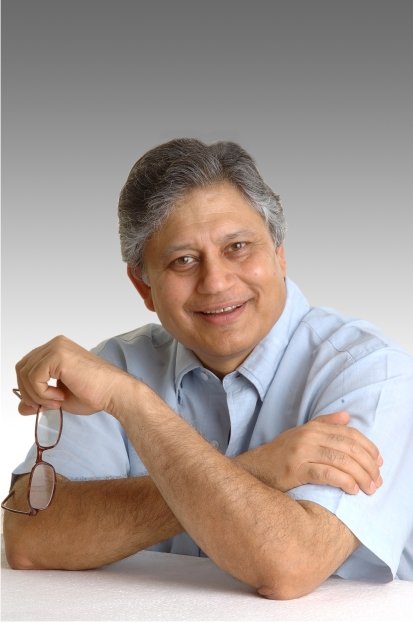
Shiv Khera is an author and a business consultant. According to his website, he has sold more than 8 million copies of his books.
He’s also “one of the most sought-after speakers.”
You Can Win Summary (PDF)
In this summary, I will give you all the lessons I’ve learned from ‘You Can Win’ by Shiv Khera.
Without further ado, let’s dive right in.
Key Lesson #1: Build Your Attitude Right
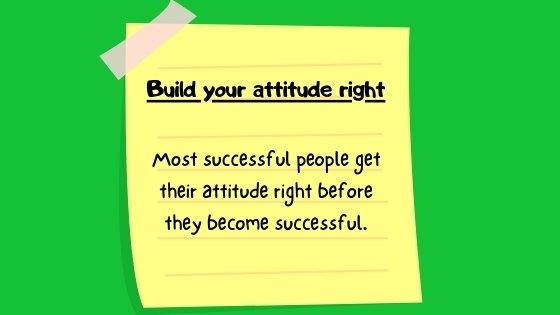
“Attitude” is one of those words that keeps popping up repeatedly.
Yes, it’s that important. Most successful people get their attitude right before they become successful.
Your attitude is determined by how you think and behave.
It will help if you keep the right attitude while facing any circumstance.
Often the people you surround yourself with affect your attitude.
That’s why you should protect your mind from harmful influences.
The author suggests that you spend time with total quality people (TQP) who have goals and ambitions.
This way, you’ll learn valuable things like good character and values from them.
Also, it’d add substance to your character.
In Attitude Is Everything, Jeff Keller discussed a similar thing.
He explained how one could alter his life by changing his attitude.
Your attitude serves as a foundation. And by having a solid foundation, you make sure that other things fall in the right place.
Can a building with a weak foundation survive turbulence from an earthquake?
No.
The same is with us.
How come a person with the wrong attitude could survive the problems in life?
Attitude also affects your outlook on life.
For instance, when subjected to the same problem, two people might react differently depending on how they see the problem.
This is how attitude determines the level of success a person would achieve in his life.
Suggested Reading: Attitude Is Everything Summary
Key Lesson #2: Understand The Factors That Affect Your Attitude
Various factors affect your attitude, but the main factors are:
- Environment.
- Experience
- Education
The environment could be taken care of by surrounding yourself with TQP. (Discussed already.)
Experience is gained over time. By building a community with TQP, you’ll enrich your experience.
Education also determines your attitude to a large extent. For example, if you read many self-help books, your worldview would differ from an average person’s.
Building the right attitude is like building the proper foundation of a house. So make sure that you aren’t messing this up.
Insight: There are plenty of book summaries and articles on this website (like the one you’re reading). Read them all to enrich yourself with valuable insights, which will further help you set the right attitude.
Key Lesson #3: Don’t Fake It
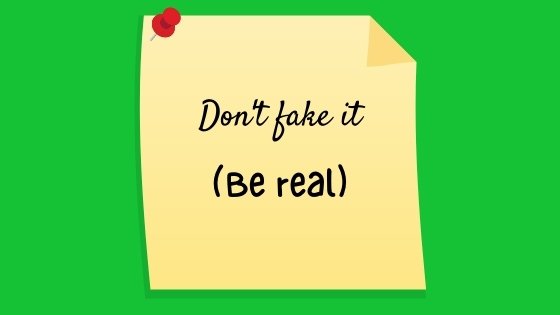
Heard the advice, “Fake it till you make it.”?
This is one of the worst pieces of advice ever. Why? Because you can’t fake anything for a long time. You can’t pretend every time by putting on a fake personality.
The only way to improve your personality is to add substance to it.
For instance, if you wish to have a charming personality, then work for it.
You won’t become charming by faking. Do exercise, read books, do exciting things, work with amazing people…
Knowing this would help you in developing and maintaining the right mindset.
You can’t build a proper attitude by thinking only, and worst — pretending.
Key Lesson #4: Choose a positive attitude over the negative one
Positive Or Negative: Which Type Of Attitude Is The Best?
You always have a choice. So it’s up to you what attitude you choose.
According to the author, you should stick with a positive attitude.
A positive attitude helps you stay more productive, reduces stress, encourages you to be a problem solver, and improves the quality of your life.
And conversely, a negative attitude do you more harm than good and often leads you to resentment.
Key Lesson #5: Embrace The Change
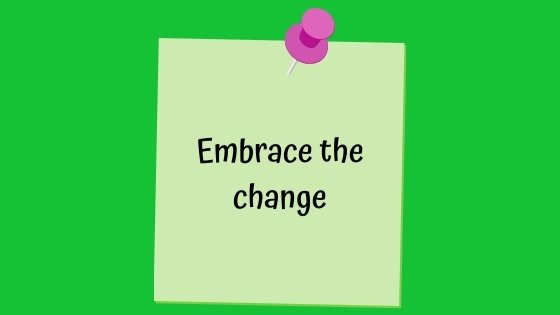
Why do you think most people stick to a negative attitude despite knowing that it’s harmful to them?
That’s because their natural tendency is to resist change.
No one wants to change. Because ‘change’ often requires you to leave your comfort zone and do things you’ve never done before.
As discussed already, not adapting to the change causes more problems.
So embrace the change. Set your attitude right. Solve your problems for good. F*ck the negative attitude.
At least develop a desire to change your attitude and make it right.
Stop blaming others for your problems!
The choice is yours, whether you want to keep blaming the world or change your life for good with the right attitude and action.
Key Lesson #6: Have The “Do It Now” Attitude
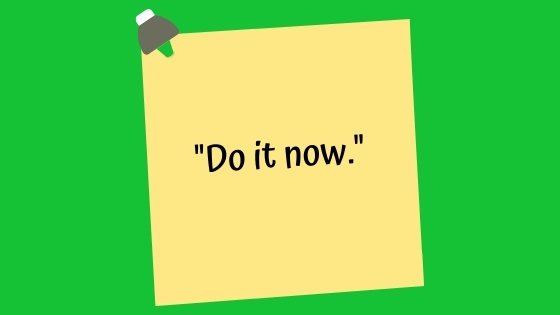
These three words, if followed, could change your whole life.
Most people live with the “Do it later” attitude rather than the “Do it now” attitude.
Procrastination is a significant problem these days.
The author says that your energy drains faster than usual when you procrastinate. You should do things without wasting your time. That way, you’ll feel more energized with a sense of achievement.
But people with negative attitudes barely get above the point. They keep procrastinating. And as a result, they regret it later.
Just do it. Don’t procrastinate and delay your success!
Key Lesson #7: “Utilize Your Present To The Fullest”
There is no point in blaming. (I hope you got the last point.)
The thing is: For better or worse, you are here now on this planet to survive.
You’ve got to do your best at any moment or utilize your time to its fullest. This is what people with a positive attitude do.
They live in the present moment and do what they can do in the best possible way.
Living in the present doesn’t necessarily mean that you’ve to ignore the past and future altogether. That’s not even possible, considering the big memory bank you have in your head.
The idea is to use your time in the best possible way. And to do that, you’ll have to plan, of course. Often people fail to get this idea right.
Note: You’ll need to stop procrastinating to apply this learning.
Key Lesson #8: Education Is More Than You Think
If you’re reading this summary, you probably know what real education is.
There is a lot of fuss about academic qualifications and degrees when people talk about education.
Especially, things like character building and teachings related to morals and ethics are entirely ignored or underestimated compared to technical knowledge.
Is the education system following the right approach? Why are there walking failures in our society who don’t understand moral values and lack humanity?
That’s because education today focuses on filling the information in our brains.
Most so-called educated people are like living encyclopedias who can’t even handle their sh*t. (Sorry for the slang!)
Here is what the author says about education:
“True education is training of both the head and the heart.”
Shiv Khera
Only by working on both head and heart do you become educated for real.
Real education comes through real-life experiences. An educated person is competent enough to use his skills in the right circumstances.
Even if you’re a post-graduate on a topic, it doesn’t matter unless you know how to put that knowledge to use.
Remember that:
“Knowledge is only potential power.”
Unknown
How do you know if you’re educated?
I bet the author isn’t entirely against acquiring academic qualifications.
The point is:
Instead of deluding yourself by reading a few books and calling it a day, ask critical questions to yourself. Here are a few questions you could try:
- Am I able to apply the things I’ve learned?
- Do I understand the concept properly?
- What value did I get from my academic course?
- Am I able to understand the human side of the studied concept?
My advice: Don’t limit yourself to books. Look what’s happening in the real world. Learn how to put your knowledge to use. And make this world a better place.
Key Lesson #9: Never Underestimate The Power Of Common Sense
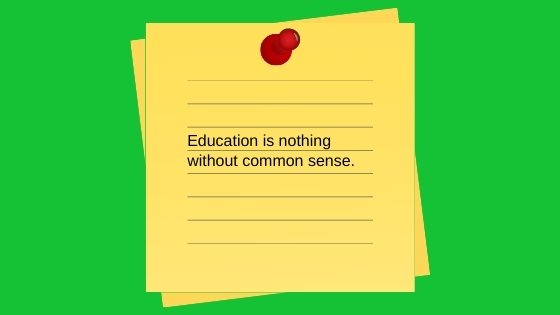
Education is nothing without common sense.
Often people believe that common sense is an ordinary thing. But the author says that common sense in abundance is actually wisdom.
You don’t need fancy degrees or qualifications to call yourself wise. Wisdom comes automatically when common sense is applied and accumulated in life.
Common sense gives you the ability to think and differentiate between good and evil. So use it every time you make a decision.
In fact, not using this extreme power would lead you to failure. You’ll regret not using common sense when you needed to.
Many people lose their credentials, become victims to hackers, and lose their money.
If only those people start using common sense and avoid downloading malicious files to their laptops or PCs, they will prevent such tragedies.
What’s more, academic education doesn’t teach you to use common sense.
Takeaway: Avoid being ignorant. Learn to apply common sense in every aspect of your life.
Want to build habits to win every day?
What if you could build more alignment, manage your energy more effectively, and increase your motivation levels?
Pretty cool, right?
Try this course by Jason Richardson on LinkedIn Learning:
Build Your Habits To Win Every Day
Jason is a mental skills coach and psychologist.
The good news is:
If you go through my link below, you’ll get a 1-month FREE trial.
Click here to claim your 1-Month LinkedIn Premium Free Trial.
You Can Win Quotes
Here are some of my favorite quotes from You Can Win by Shiv Khera:
“Think only the best, work only for the best, and expect only the best.
~ Shiv Khera
“Spend so much time improving yourself that you have no time left to criticize others.”
~ Shiv Khera
“Never leave till tomorrow which you can do today.”
~Benjamin Franklin
“Count your blessings, not your troubles.”
~Shiv Khera
“True education is training of both the head and the heart.”
~Shiv Khera
You Can Win Book Review
[amazon box=”9382951717″]
I read this book on my mobile. Well, this is a long one. It isn’t for those who struggle to understand lengthy books.
What kind of book is ‘You Can Win’?
This book felt similar to Robin Sharma’s Who Will Cry When You Die as it gives a holistic view of various concepts like vision, values, education, environment, and much more.
I already knew many things that are taught in this book. That’s because I read this kind of stuff all the time.
But if you’re a beginner and don’t even have the slightest clue about various aspects of life, you should read this book.
Buy: Purchase this book on Amazon.
Want to keep reading?
Read related summaries. I’d suggest you read these summaries:
- Book Summary: Attitude Is Everything by Jeff Keller
- Book Summary: Who Will Cry When You Die by Robin Sharma
If you’ve already read them, try reading them on Blinkist. It’s a non-fiction book summary app that gives you insights from over 4500 books.
Plus, you get to listen to author podcasts and shows too.
👉Click here to start Blinkist 7-days Free Trial
Did You Enjoy This Summary?
I hope you enjoyed the You Can Win Summary.
Now you tell me…
Which lesson influenced you the most?
Tell me in the comments below. I reply to all.
Share this summary with your friends and family members.
It’d help me a lot. Thanks in advance.
Want to consume more insightful, power-packed content like this in the future?
Subscribe to the weekly email newsletter.
Subscribe to YouTube channel for animated video books.
Try Amazon’s Audible 30-days Free Trial and Get 2 Audiobooks for free.
